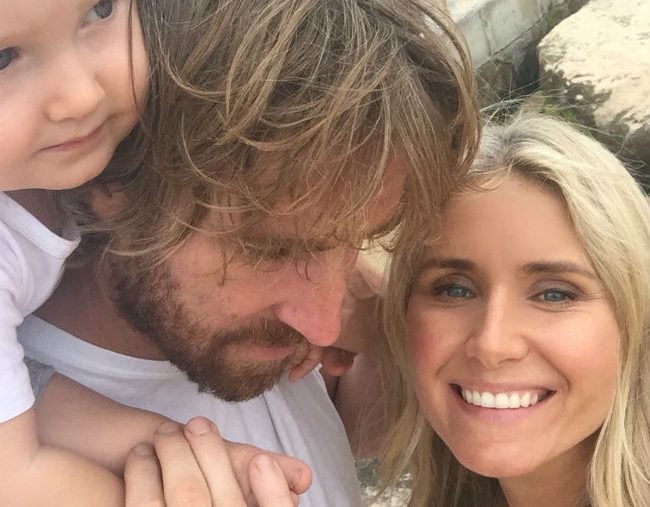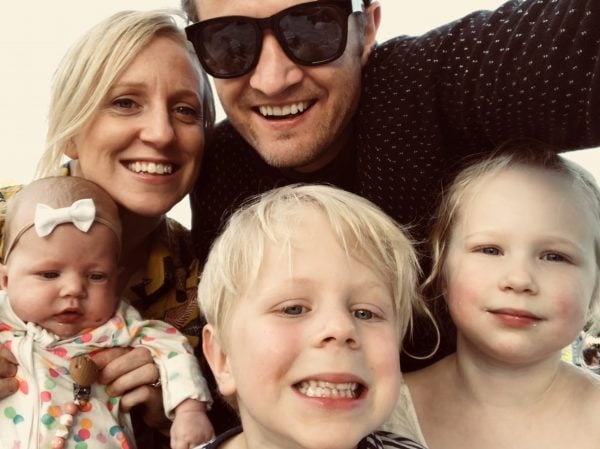

This may surprise you. One in five women will need blood or blood-related products throughout birth or pregnancy.
This is the alarming statistic at the heart of a new campaign from the Australian Red Cross Blood Service. As a mother myself, I was shocked to learn that the number was so high. But, the message behind She Gives Birth, You Give Blood is that we can do something about it.
Magdalena Roze, journalist, author and presenter, is the ambassador for the campaign, which encourages partners, families and friends of pregnant women to donate blood to assist with pregnancy conditions.
I remember so clearly how helpless my husband felt during my pregnancy, wanting to be able to help in some way. Roze, a mum of one and currently pregnant with her second child, agrees.
“The pregnancy experience can be quite isolating and confusing for a lot of partners as they can’t know what a woman is going through,” Roze tells Mamamia.
“While they want to do something, they can feel quite helpless. While pregnancy is the most magical, surreal and beautiful thing, they also see us suffering through nausea, discomfort, sleeplessness, anxiety, hormonal imbalances…the list goes on!”
